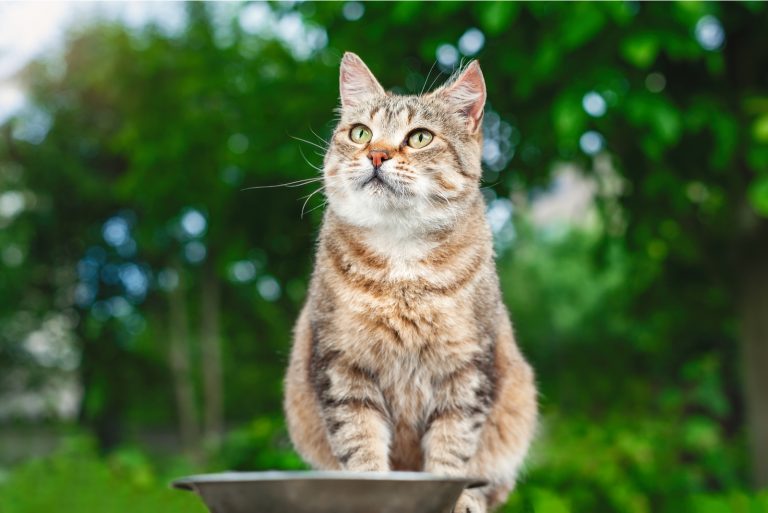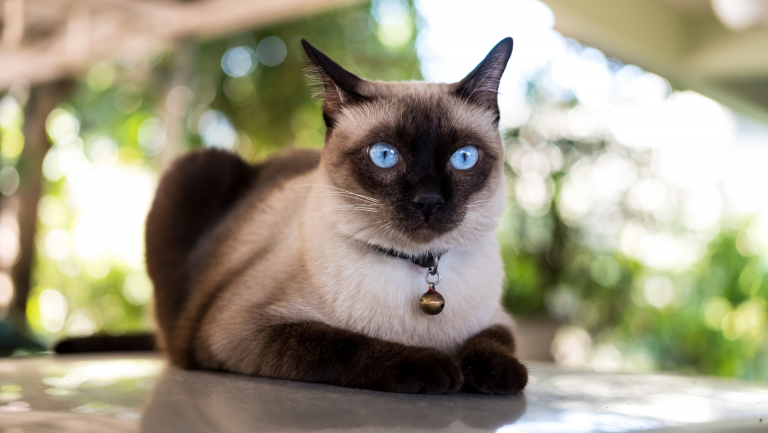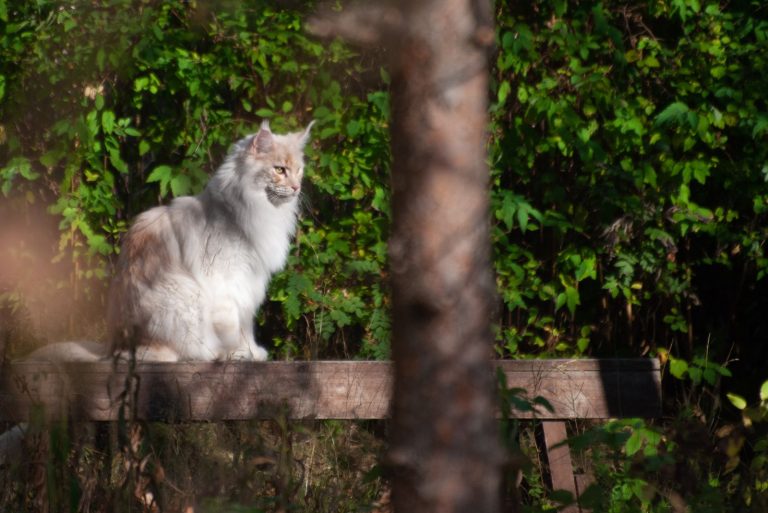Why Does My Cat’s Poop Smell So Bad? Causes And Solutions
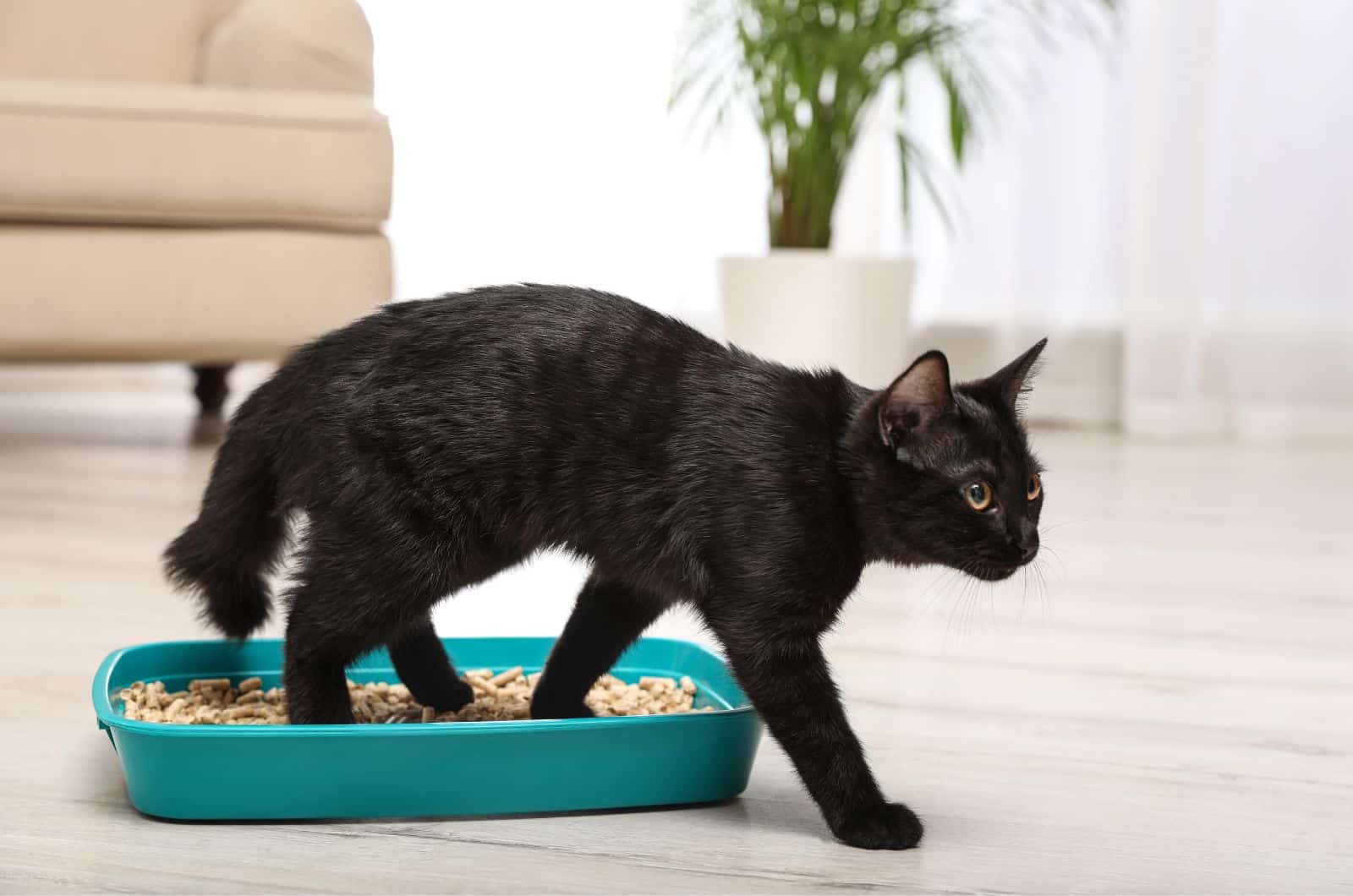
All cat owners put their cat’s health first, but even if this wasn’t the case I believe that when it comes to poop smells every owner wants to deal with any problems as soon as they arise!
Cat poop is something you need to clean on a regular basis, and it’s something that can stink up your entire house. Who would want that?!
Say you regularly clean your cat’s litter box, you change the litter, and your cat seems fine, but the smell of poop has become unbearable! Of course you are going to wonder what the problem is! Why does my cat’s poop smell so bad?
Well, continue reading to find out what are the most common causes of a terrible poop smell and how to help your feline friend get better.
Bear in mind that whatever the reason for any health issues your cat might have, your vet is the best person to assess the problem and give you advice. It is always better to be safe than sorry.
Why Does My Cat’s Poop Smell So Bad? 12 Reasons
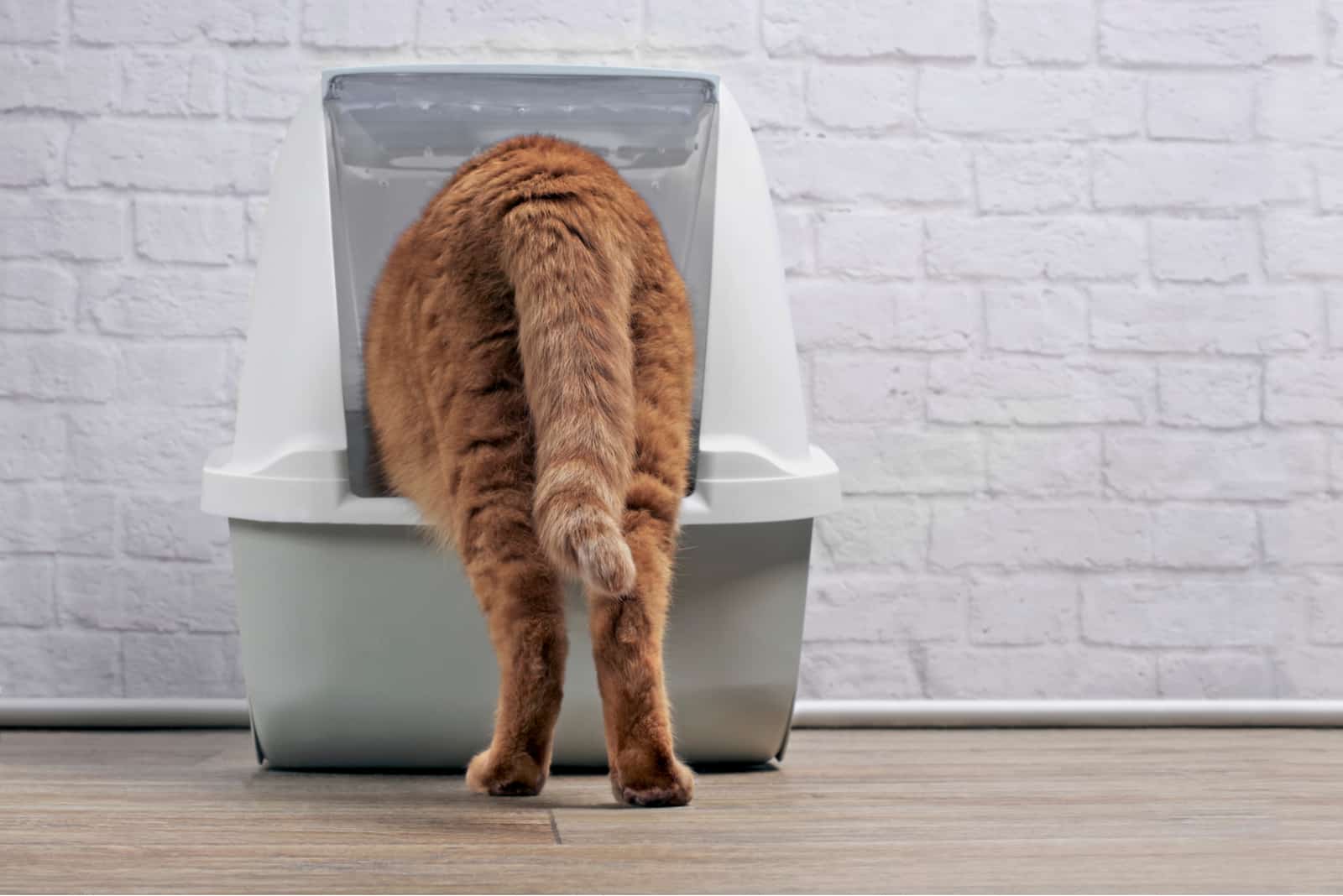
So, why does my cat’s poop smell so bad? There are different reasons that might cause changes to a cat’s poop smell.
The following are the most common reasons why your cat’s poop smells so bad, and below you can also read about some possible solutions that might help you deal with it.
Your vet will advise you, depending on the exact cause for your cat’s poop smell; perhaps you’ll need a new diet for your cat, or the problem might involve some infection or illness of the gastrointestinal tract, but whatever the problem is for your cat, your vet is there to help!
1. Anal Gland Infections
Anal gland infections are more common in dogs than cats. However, if the sacs from these glands get blocked, the glandular fluid cannot be squeezed out when the cat defecates. The glands might get clogged, causing constipation and interfering with the cat’s digestive system.
Infection occurs when too much bacteria accumulates in the cat’s anal glands. This makes the entire region unpleasant and irritating for the cat, and it might scoot on the floor and/or lick the area to reduce discomfort.
Infections that go untreated for an extended period of time might lead to an abscess. This is a very painful ailment that requires immediate medical attention. I
t’s best to take the cat to the vet before the abscess ruptures, since release of the abscess content can lead to infection spreading to other sites.
If a cat shows indications of anal gland issues, the owner should consult the vet to determine whether antibiotics or pain killers are required.
In rare circumstances, the vet will express the cat’s glands manually.
In addition to any urgent therapy, nutritional supplements are often prescribed for pets who are susceptible to these issues. By adding fiber and other essential elements to your cat’s diet, you can help to prevent future health issues.
You might also want to read: Cat Leaking Brown Fluid – Causes, Symptoms, and Treatment
2. Cat’s Diet
Stinky cat stool is often associated with a bad diet. Cats naturally eat a lot of proteins. Cat’s ancestors hunted and ate prey that was full of animal proteins.
Cat foods that contain a lot of proteins commonly cause your cat’s poop to smell horrible, but a few changes in your cat’s diet can reduce these smells.
Always feed your cat high-quality cat foods; these are a bit more expensive than lower-quality foods, but you can still find some at a discount or for affordable prices. Talk to your vet and plan out a diet that will work best for your cat!
3. Intestinal Parasites Or Bacteria
Both adult cats and kittens can ingest parasites or bacteria by sniffing around and, more commonly, by eating bugs or something else when they are exploring outside.
Bacterial infections like E.coli, or Salmonella, and various intestinal parasites are commonly present in a cat’s gastrointestinal tract when cats experience intestinal issues.
The most common parasites that affect a cat’s digestive system include Trichomonas or Giardia – you will need the vet to run some tests to determine which of them is the cause for your cat’s intestinal problems. Your vet will further instruct you on how to treat your cat.
4. Food Allergies
Some cats are more sensitive than others, and some have more sensitive stomachs as well. Cats are prone to food allergies and food intolerance, but every cat is different so consulting your vet and establishing the best diet for your cat is important.
Food intolerance or allergies can bring about different digestive issues and health problems, like constipation, diarrhea, and even smelly poop.
Cats are most likely to be intolerant to lactose, which is funny because most people believe that milk is good for cats, but is it? Cats shouldn’t have milk in their diet, the only milk that is suitable for cats is their mother’s milk when they are kittens.
Other allergies can be a common cause for stinky cat poop as well, so changing your cat’s diet will usually be a part of the treatment.
5. Supplements Or Medications
You might be giving your cat some medications that are required for other medical conditions, but that too can have an impact on the cat’s poop smell.
This doesn’t mean that your cat is ill or that anything is wrong at all. Your cat’s droppings can smell pretty bad, but if your cat is on some meds temporarily, be patient since the foul-smelling poop might go away with the end of the treatment.
6. Digestive Disorders
Perhaps your cat frequently has digestive disorders, like constipation or diarrhea. This might suggest sensitivity. Your cat might have a sensitive stomach and will therefore require special cat food for sensitive cats.
Other issues, like mal-absorption or mal-digestion, can also cause a foul smell from a cat’s stool.
Malabsorption means that your cat isn’t absorbing all the good things from its food, so your cat isn’t getting all the nutrients and starches it should be getting, and it isn’t digesting properly.
Your vet will need to determine why this is the case and will advise you on how to help your beloved pet.
You might also want to check out: How Long Does It Take A Cat To Digest Food?
7. Intestinal Bleeding
If intestinal bleeding is causing smelly stools in your home, you’ll probably notice blood in your cat’s stool or a strong, metallic poop odor.
Your cat might have intestinal bleeding due to an injury or various other health problems. If you notice blood in your cat’s stool or litter box, go and see a vet.
8. Maybe It’s The Litter Box?
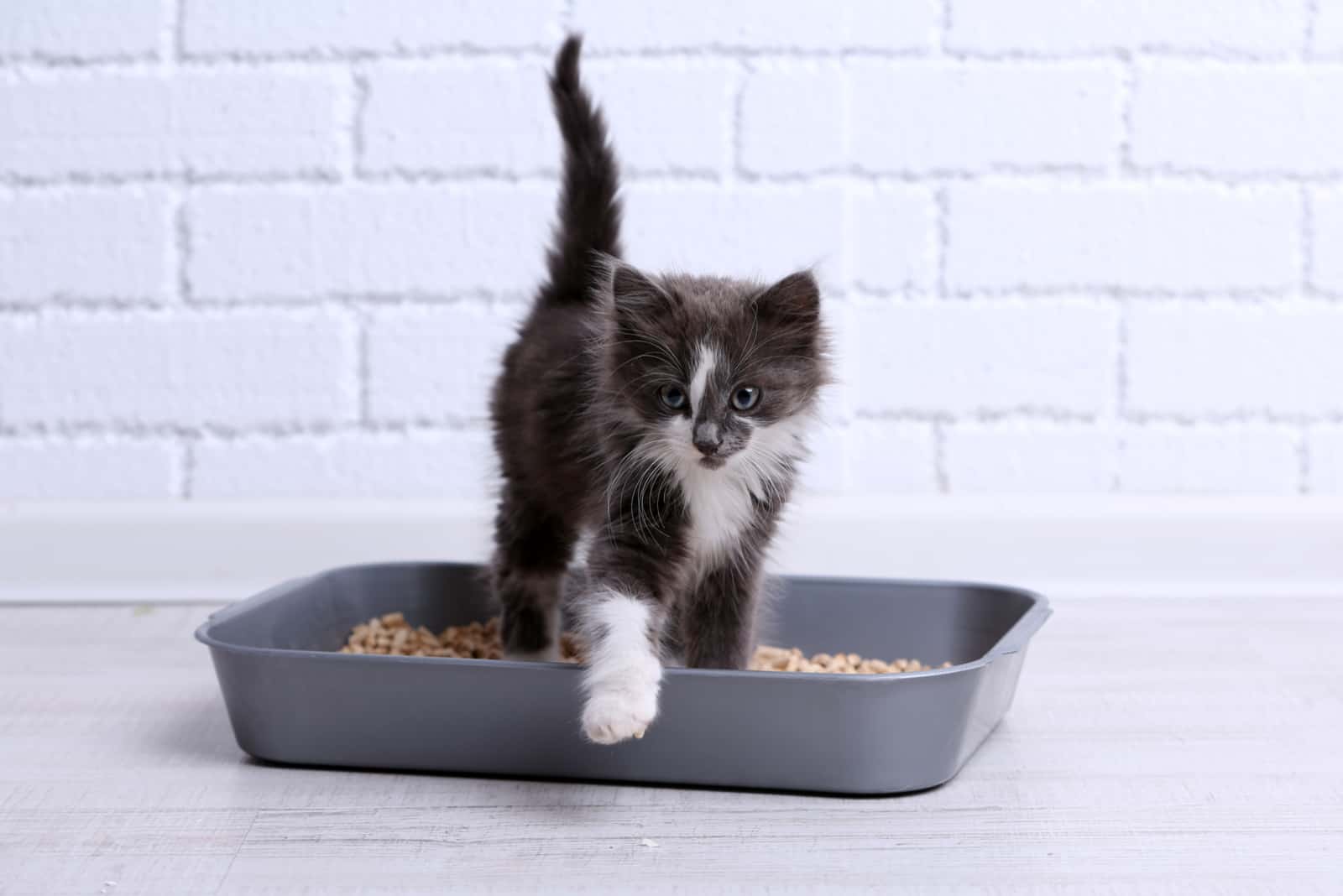
You should clean the litter box once daily, if not more often. Bad smelling stools are sometimes not the case; sometimes, the problem can be your cat’s litter box.
Maybe you’re not cleaning it correctly – you should always try and scoop out the clumps of litter and all poop droppings.
You should rinse and wash the litter tray every time you change the litter. There are litter box deodorizers as well, which you can use for odor control.
Sometimes the bad smells in your apartment will depend on the type of litter you are using. Some litters are scented, and not all scents mix well with poop smells.
See also: How To Get Rid Of Cat Litter Smell In Apartment Top 8 Ways
9. Cat-Caught Food
As aforementioned, cats are carnivores, and meat-based foods are required for their diet. However, if you let your cat outdoors too, it will probably catch some prey outside and sometimes eat it.
Prey like bugs, mice, etc. might result in foul-smelling fecal matter. What your cat eats has a lot to do with what kind of smell you get afterward!
10. Low-Quality Litter
There are many cat litter brands, types, and varieties… and not every cat litter is high-quality. Some litters are more absorbent, some are better at hiding smells, whereas some (usually cheaper versions) can lead to even worse smells than the cat poop alone.
Unscented cat litter often brings about worse smells than cat’s poop or pee alone.
It is best to look for cat litters that have strong odor control. Keep in mind that if you decide to switch cat litter, you need to do it gradually so your cat doesn’t stop using the litter box because of the unfamiliar litter.
You might want to check out: Best Cat Litter For Heavy Urination + Helpful Health Tips
11. Liver Or Pancreatic Disease
A cat’s liver, gallbladder, and pancreas play an important role in the digestive system. It is important as it aids in digesting fats, and if your cat develops any of them, this can result in smelly cat feces.
Pancreatic disease or an inflamed pancreas can result in smelly poop.
The pancreas is essential in providing enzymes that your cats need in order to digest food and absorb the required nutrients. Rarely, but it can happen, that cats get an inflamed pancreas and it stops working completely.
If you happen to notice anything wrong or strange about your cat’s poop, its smell, or anything associated with it, go and see the vet.
12. Stress
Stress is never good, and as with many other health issues, stress can cause only bad things for your cat.
When associated with a cat’s smelly poop, stress causes stomach upset because of hormones that get stirred up. It doesn’t matter what triggers the stress, it can still affect the smell of your cat’s poop.
How To Help?
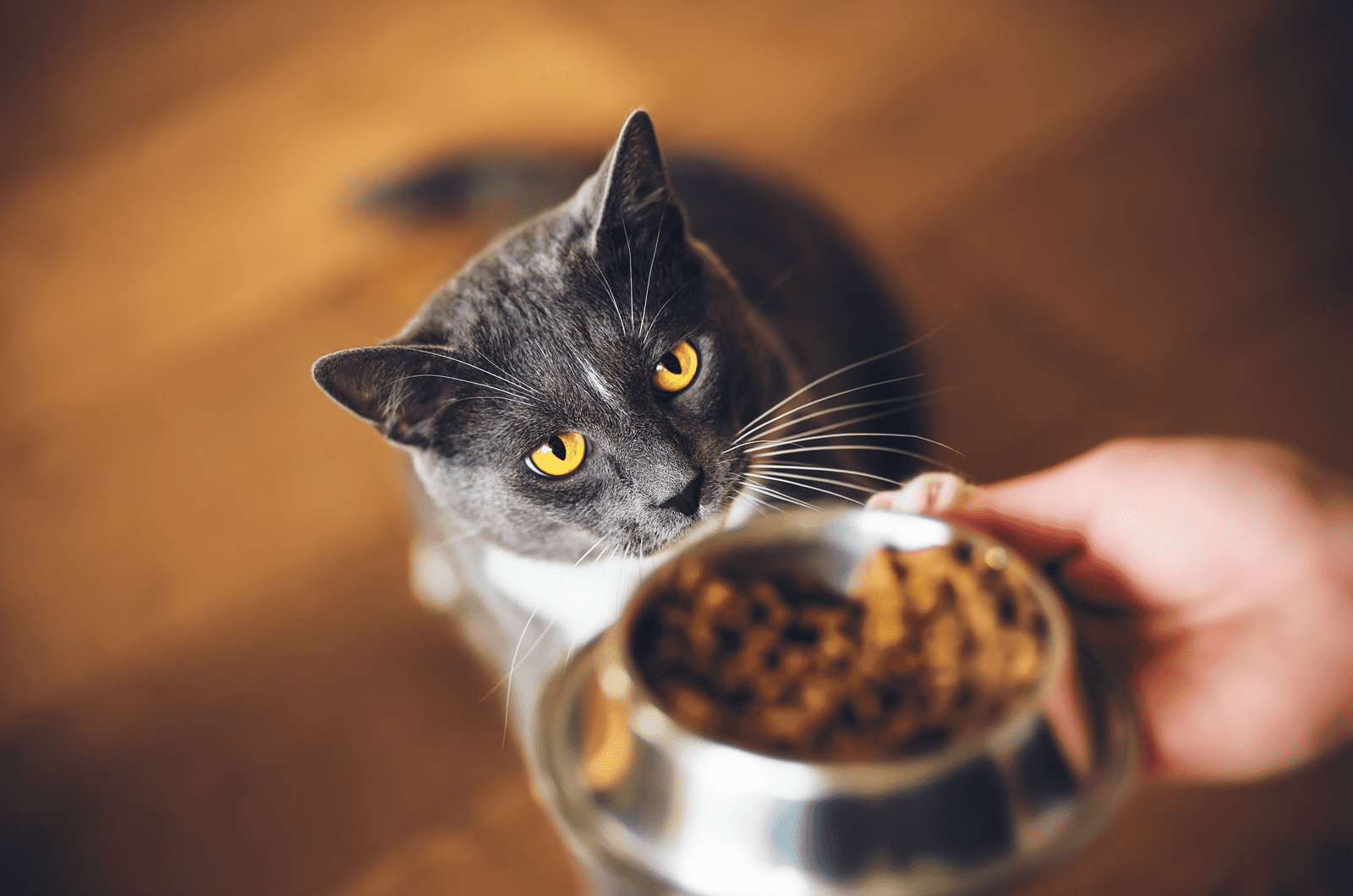
You’ve read the possible reasons that are causing your cat’s poop to smell bad, and here are some general solutions you might use to help your cat get better and get rid of the terrible poop smell.
1. Change Your Cat’s Diet
A high-fiber diet may be ideal for your cat if it has diarrhea or constipation. Cat food that is rich in fiber is easily digested, which means the food is easily broken down by the stomach.
Always introduce any dietary change gradually into your cat’s life. Your cat might be repulsed by a new type of food which can only result in them not eating it.
A new food, new protein, or hypoallergenic diet, on the other hand, may be the best option for your cat.
These diets are designed to avoid food sensitivities while providing high-quality nourishment. Results may take up to two months to become apparent, and during that period, you can’t feed anything else to your cat.
2. Create A Stress-Free Environment
If your cat is stressed at home, try to reduce any stressful situations.
If perhaps you have more than one cat and they are aggressive against each other, try using pheromone diffusers, as they’re known for relaxing cats and eliminating unwanted aggressive behavior
Keep your cat entertained by giving it new toys, cat trees, cat beds, places to climb, and/or scratching posts. Medications and natural supplements, such as additional protein sources, may also be beneficial.
3. Medications & Probiotics
Probiotics are living microorganisms that survive the stomach acids of a cat and in fact, flourish in it. These “good” bacteria do wonders for stomach balance and cat’s digestion.
If your cat has some kind of ailment, it may need either short-term or long-term medicine. Cats suffering from diarrhea may be given medicine such as metronidazole. In any case, probiotics are a good idea.
Consult your vet about including them in your cat’s daily life.
When To Visit The Vet
If you discover that your cat’s appetite or activity level has dropped, contact your veterinarian. Dehydration is probable if your cat has diarrhea for more than three days, or if its poop contains blood or mucus or is severe and/or frequent.
Veterinary treatment is required if your cat’s diarrhea continues for more than three days, if the cat’s poop contains blood or mucus, or is severe and/or frequent.
If your cat is vomiting, there is visible weight loss, or you notice behavioral changes linked with illness, it should be treated as soon as possible.
If your efforts at home do not cure the unpleasant odors within a month, you should see your vet. Bad-smelling cat excrement might be a sign of something more severe, and so it should be examined.
Cat stool that stinks is not a medical emergency. However, if you find your cat losing weight, having a poor appetite, being really fatigued, or vomiting many times over a period of 24 to 48 hours, consult your vet.
See also: How Long Can A Cat Go Without Using The Bathroom? Explained
Healthy Cat Poop: How Does It Look & Smell?
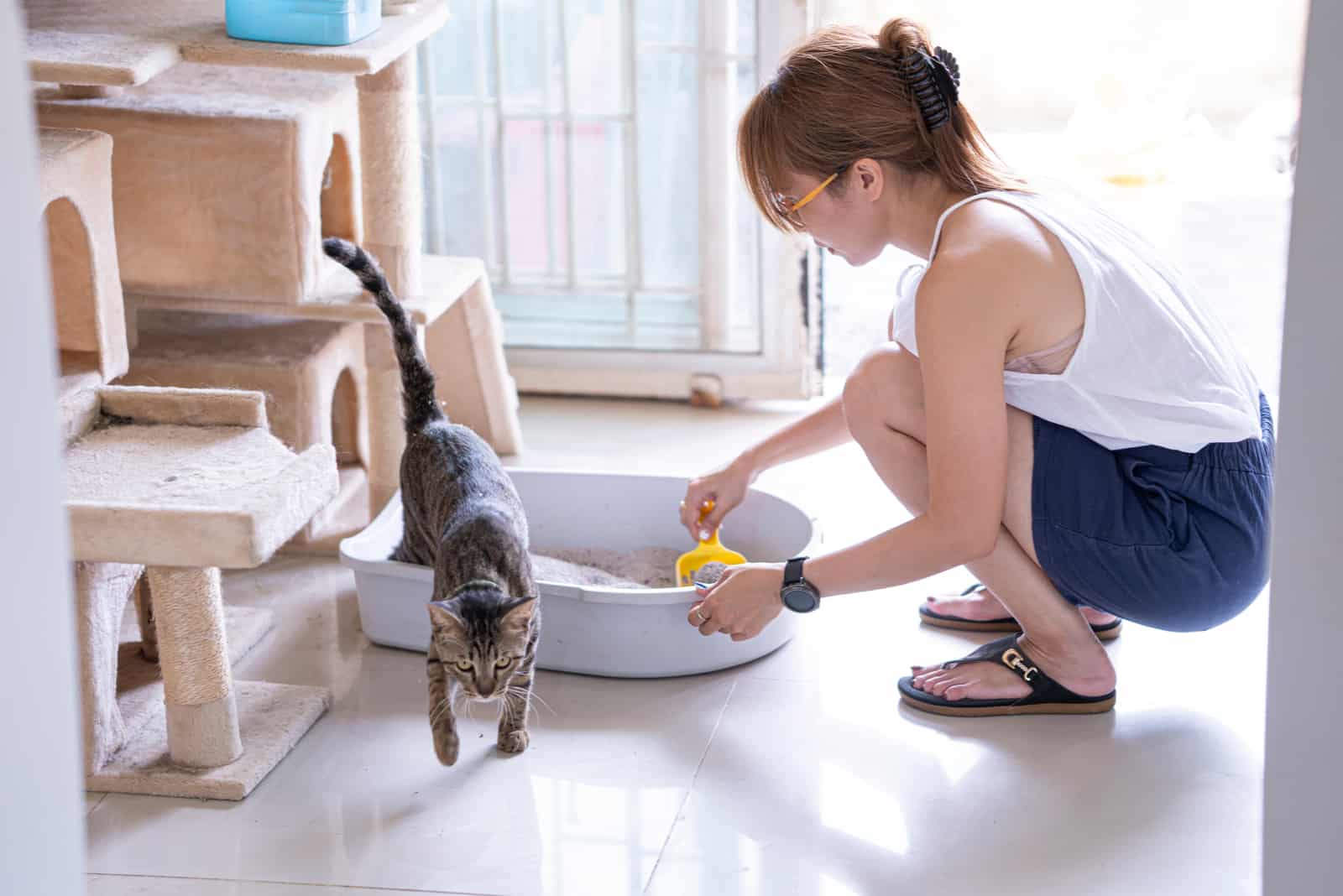
The optimum shape of cat poop is small, compact, and elongated, yet the length and volume often correspond with your cat’s body size.
Poop color should be dark brown, and it should have a texture that is formed and solid, basically firm and not hard.
Healthy cat poop should have a moderate, scarcely detectable odor. Healthy cat feces has a stench, and it isn’t pleasant, but it shouldn’t stink up the entire apartment. The odor usually fades in a matter of minutes.
A healthy cat poop should look like droppings that are 1 inch long or a bit longer and which remain formed when being cleaned up. The feces can leave a little trace on the litter scoop, but it should not seem moist or get stuck to the scoop.
See also: Cat Poop Half Firm Half Soft: 5 Reasons And How To Help
Final Thoughts
Cat poop (and pee), despite the fact that it is cleaned up on a regular basis, has the potential to stink over your whole house.
You clean your cat’s litter box on a regular basis, replace the litter, and your cat appears to be OK, but the odor of poop has really become terrible! You start to wonder, “What’s the problem?” Why does my cat’s poop smell so bad?”
Hopefully, you have recognized your cat’s potential issue within the listed reasons, and you’ll have no trouble dealing with it.
Keep in mind that, regardless of the reason for your cat’s current situation, the assistance of your veterinarian is essential. Most things can be solved when you act on it in good time!

